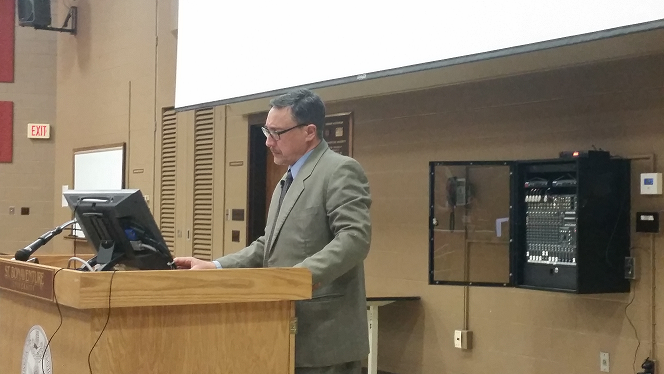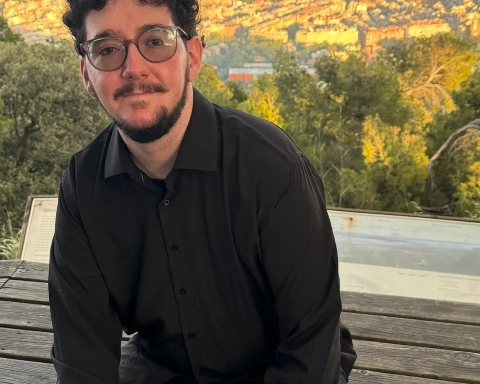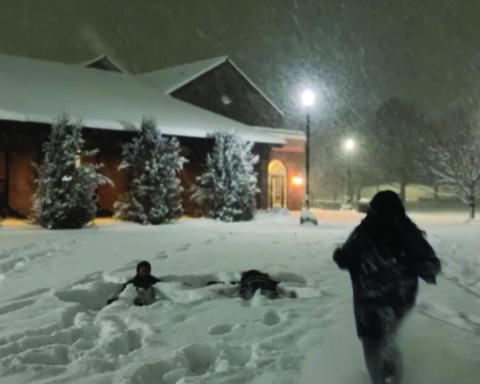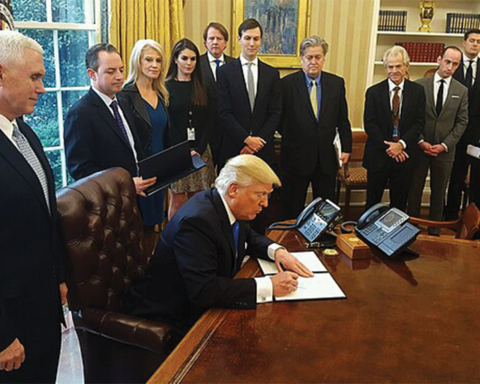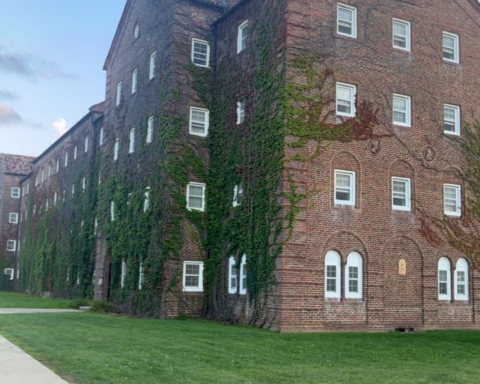By Shannon West
Staff Writer
Brazilians are passionate about their soccer and it is important to Brazilian culture, Osvaldo Succi Jr., this year’s visiting Lenna Professor, told his audience at his speech Wednesday afternoon.
His lecture, titled “Globalization: The Culture of Sport in Brazil,” presented how globalization is a conceptual entry to the problem of world order, while discussing the historical and comparative matters in a country.
Succi, a native of São Paulo City, São Paulo, Brazil, received his bachelor’s degree from the Universidade Estadual de Campinas. He continued his education at the State University of New York at Albany, where he received his Master of Science in teaching English. He also received a master’s degree in applied linguistics and language studies from Pontifícia Universidade Católica de São Paulo.
The Lenna Visiting Professorship is funded through a grant from The Lenna Foundation located in the Jamestown area. The grant is shared between St. Bonaventure University and Jamestown Community College (JCC), and each year a professor visits the both Bonaventure and JCC to talk on the importance of culture.
“Each of us is conditioned from birth by our culture,” said Succi. “It teaches us to use the appropriate tone of voice, facial expression, gestures, table manners, etc.”
According to Succi, a person’s perspective of the world has a direct connection to the culture. However, perspective is only a minor problem and if a person were to look beyond his or her culture, he or she could try to look at the world in a different way.
In Brazil, despite poverty, there is still a place for soccer because it has a very important role in Brazilian society, he said. He described the life of Marta Vieria da Silva, a soccer player for the women’s Brazil national team who has won the FIFA world cup player of the year five times.
“Marta became famous during a time when men were saying ‘women cannot play soccer,’” Succi said. “So Marta shows us that this only-male game becomes female. In my personal opinion, [she is] one of the best soccer players because Marta has this really important role in breaking the barriers in our society for women to play soccer.”
Paula Scraba, associate professor of physical education, asked at the end of the lecture about the equality between men and women in Brazilian soccer.
“[I asked] because of my experience in Lumbaqui, Ecuador, which is in the Amazon region, soccer was very much a part of the village,” said Scraba.
She explained that games rotated between men-only games and women-only games.
“The women would have so much respect in a positive game,” Scraba said.
She asked Succi if women’s sports got as much respect in Brazil as they did in Ecuador.
Succi responded to Scraba by saying the pay scale between men and women is very different, but athletes of different sports get comparable pay, unlike some American sports.
According to Succi, soccer is an important source of revenue for Brazil because of how deeply soccer is rooted in its culture.
“There’s a whole economy that is around soccer so I think it is an important source of revenue for Brazil in many different ways,” said Succi. “We can have the soccer players to go abroad and bring money back, and we sell soccer players to Europe. So I think it is very important to us.”
Monica Mattioli, Succi’s host, said she believes the students were curious about Succi’s lecture and that she was pleased with how the event turned out.
“This particular year is different because generally we’ll have someone from the faculty here and they’re a US citizen, they’re Americans. So to have someone from a different country is unique,” said Mattioli. “So that to me lends a flavor to other students that others wouldn’t get.”
When it comes to Succi’s opinion on soccer in the United States, he said he believes that America will soon catch up and embrace soccer.
“I see it getting bigger and bigger,” said Succi. “I think that the moment American companies realize that it is very big abroad they will embrace it and I think there are major chances. There are already soccer teams starting in America, and I think there is a very big chance that the United States will catch up soon.”
westsm14@bonaventure.edu

